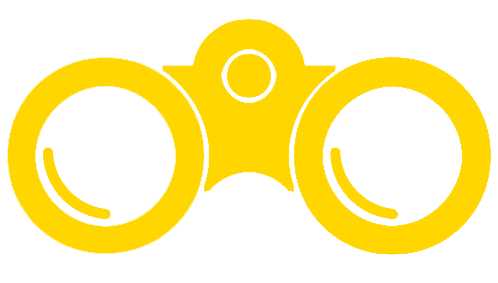1: Course Contents at a Glance
- Page ID
- 236872
\( \newcommand{\vecs}[1]{\overset { \scriptstyle \rightharpoonup} {\mathbf{#1}} } \)
\( \newcommand{\vecd}[1]{\overset{-\!-\!\rightharpoonup}{\vphantom{a}\smash {#1}}} \)
\( \newcommand{\dsum}{\displaystyle\sum\limits} \)
\( \newcommand{\dint}{\displaystyle\int\limits} \)
\( \newcommand{\dlim}{\displaystyle\lim\limits} \)
\( \newcommand{\id}{\mathrm{id}}\) \( \newcommand{\Span}{\mathrm{span}}\)
( \newcommand{\kernel}{\mathrm{null}\,}\) \( \newcommand{\range}{\mathrm{range}\,}\)
\( \newcommand{\RealPart}{\mathrm{Re}}\) \( \newcommand{\ImaginaryPart}{\mathrm{Im}}\)
\( \newcommand{\Argument}{\mathrm{Arg}}\) \( \newcommand{\norm}[1]{\| #1 \|}\)
\( \newcommand{\inner}[2]{\langle #1, #2 \rangle}\)
\( \newcommand{\Span}{\mathrm{span}}\)
\( \newcommand{\id}{\mathrm{id}}\)
\( \newcommand{\Span}{\mathrm{span}}\)
\( \newcommand{\kernel}{\mathrm{null}\,}\)
\( \newcommand{\range}{\mathrm{range}\,}\)
\( \newcommand{\RealPart}{\mathrm{Re}}\)
\( \newcommand{\ImaginaryPart}{\mathrm{Im}}\)
\( \newcommand{\Argument}{\mathrm{Arg}}\)
\( \newcommand{\norm}[1]{\| #1 \|}\)
\( \newcommand{\inner}[2]{\langle #1, #2 \rangle}\)
\( \newcommand{\Span}{\mathrm{span}}\) \( \newcommand{\AA}{\unicode[.8,0]{x212B}}\)
\( \newcommand{\vectorA}[1]{\vec{#1}} % arrow\)
\( \newcommand{\vectorAt}[1]{\vec{\text{#1}}} % arrow\)
\( \newcommand{\vectorB}[1]{\overset { \scriptstyle \rightharpoonup} {\mathbf{#1}} } \)
\( \newcommand{\vectorC}[1]{\textbf{#1}} \)
\( \newcommand{\vectorD}[1]{\overrightarrow{#1}} \)
\( \newcommand{\vectorDt}[1]{\overrightarrow{\text{#1}}} \)
\( \newcommand{\vectE}[1]{\overset{-\!-\!\rightharpoonup}{\vphantom{a}\smash{\mathbf {#1}}}} \)
\( \newcommand{\vecs}[1]{\overset { \scriptstyle \rightharpoonup} {\mathbf{#1}} } \)
\(\newcommand{\longvect}{\overrightarrow}\)
\( \newcommand{\vecd}[1]{\overset{-\!-\!\rightharpoonup}{\vphantom{a}\smash {#1}}} \)
\(\newcommand{\avec}{\mathbf a}\) \(\newcommand{\bvec}{\mathbf b}\) \(\newcommand{\cvec}{\mathbf c}\) \(\newcommand{\dvec}{\mathbf d}\) \(\newcommand{\dtil}{\widetilde{\mathbf d}}\) \(\newcommand{\evec}{\mathbf e}\) \(\newcommand{\fvec}{\mathbf f}\) \(\newcommand{\nvec}{\mathbf n}\) \(\newcommand{\pvec}{\mathbf p}\) \(\newcommand{\qvec}{\mathbf q}\) \(\newcommand{\svec}{\mathbf s}\) \(\newcommand{\tvec}{\mathbf t}\) \(\newcommand{\uvec}{\mathbf u}\) \(\newcommand{\vvec}{\mathbf v}\) \(\newcommand{\wvec}{\mathbf w}\) \(\newcommand{\xvec}{\mathbf x}\) \(\newcommand{\yvec}{\mathbf y}\) \(\newcommand{\zvec}{\mathbf z}\) \(\newcommand{\rvec}{\mathbf r}\) \(\newcommand{\mvec}{\mathbf m}\) \(\newcommand{\zerovec}{\mathbf 0}\) \(\newcommand{\onevec}{\mathbf 1}\) \(\newcommand{\real}{\mathbb R}\) \(\newcommand{\twovec}[2]{\left[\begin{array}{r}#1 \\ #2 \end{array}\right]}\) \(\newcommand{\ctwovec}[2]{\left[\begin{array}{c}#1 \\ #2 \end{array}\right]}\) \(\newcommand{\threevec}[3]{\left[\begin{array}{r}#1 \\ #2 \\ #3 \end{array}\right]}\) \(\newcommand{\cthreevec}[3]{\left[\begin{array}{c}#1 \\ #2 \\ #3 \end{array}\right]}\) \(\newcommand{\fourvec}[4]{\left[\begin{array}{r}#1 \\ #2 \\ #3 \\ #4 \end{array}\right]}\) \(\newcommand{\cfourvec}[4]{\left[\begin{array}{c}#1 \\ #2 \\ #3 \\ #4 \end{array}\right]}\) \(\newcommand{\fivevec}[5]{\left[\begin{array}{r}#1 \\ #2 \\ #3 \\ #4 \\ #5 \\ \end{array}\right]}\) \(\newcommand{\cfivevec}[5]{\left[\begin{array}{c}#1 \\ #2 \\ #3 \\ #4 \\ #5 \\ \end{array}\right]}\) \(\newcommand{\mattwo}[4]{\left[\begin{array}{rr}#1 \amp #2 \\ #3 \amp #4 \\ \end{array}\right]}\) \(\newcommand{\laspan}[1]{\text{Span}\{#1\}}\) \(\newcommand{\bcal}{\cal B}\) \(\newcommand{\ccal}{\cal C}\) \(\newcommand{\scal}{\cal S}\) \(\newcommand{\wcal}{\cal W}\) \(\newcommand{\ecal}{\cal E}\) \(\newcommand{\coords}[2]{\left\{#1\right\}_{#2}}\) \(\newcommand{\gray}[1]{\color{gray}{#1}}\) \(\newcommand{\lgray}[1]{\color{lightgray}{#1}}\) \(\newcommand{\rank}{\operatorname{rank}}\) \(\newcommand{\row}{\text{Row}}\) \(\newcommand{\col}{\text{Col}}\) \(\renewcommand{\row}{\text{Row}}\) \(\newcommand{\nul}{\text{Nul}}\) \(\newcommand{\var}{\text{Var}}\) \(\newcommand{\corr}{\text{corr}}\) \(\newcommand{\len}[1]{\left|#1\right|}\) \(\newcommand{\bbar}{\overline{\bvec}}\) \(\newcommand{\bhat}{\widehat{\bvec}}\) \(\newcommand{\bperp}{\bvec^\perp}\) \(\newcommand{\xhat}{\widehat{\xvec}}\) \(\newcommand{\vhat}{\widehat{\vvec}}\) \(\newcommand{\uhat}{\widehat{\uvec}}\) \(\newcommand{\what}{\widehat{\wvec}}\) \(\newcommand{\Sighat}{\widehat{\Sigma}}\) \(\newcommand{\lt}{<}\) \(\newcommand{\gt}{>}\) \(\newcommand{\amp}{&}\) \(\definecolor{fillinmathshade}{gray}{0.9}\)
The following list shows a summary of the topics covered in this course. To see all of the course pages, visit the Table of Contents.
Module 1 ¡Hola! ¿Cómo te llamas?
Encantado
- Saludos y respuestas
- ¿Formal o informal?
- El alfabeto
En la clase
- En el salón de clases
- Números 0-31
¿Cuántos libros hay?
- Género de sustantivos
- Número de sustantivos
¿Qué hay en la clase?
- Artículos indefinidos y definidos
- ¿Qué hay?
Module 2 ¿Eres estudiante?
¿Qué día es hoy?
- Días y meses
¿Cuál es la fecha hoy?
- La fecha
¿El lápiz es de ella?
- Los pronombres de sujeto
- El verbo ser
- Ser + de
¿El estudiante es inteligente?
- Colores
- Concordancia de adjetivos
Cultura U2
- Cultura: Los hispanos en los Estados Unidos
Module 3 ¿Qué clases tomas?
¿Estudias en la biblioteca?
- Verbos -ar (2)
¿Qué idiomas hablas tú?
- Conjugacion (verbos -ar)
¿Caminas a la universidad?
- Verbos regulares con –ar
- Preguntas: Verbos regulares con –ar
¿A qué hora es tu primera clase?
- ¿Qué hora es?
Module 4 ¿Tienes prisa?
¿Descansas en la residencia estudiantil?
- Los lugares y cursos de la universidad
¿Tienes una clase por la noche?
- El verbo tener
¿Tienes que estudiar hoy?
- Expresiones con tener
¿Adónde vas?
- El verbo ir
Cultura U4
- Cultura: La universidad
Module 5 ¿Quiénes son los miembros de una familia?
El árbol de familia
- La familia
Mi casa es tu casa
- Los posesivos
¿Qué aprendemos ahora?
- Verbos regulares de -er/-ir
- Conjugación (verbos -er/-ir)
Mi perro es bonito y pequeño
- Adjetivos descriptivos
- Los países, las nacionalidades y más
Module 6 ¿Necesito un suéter?
¿Qué ropa llevas?
- La ropa
¿Qué tiempo hace hoy?
- El clima
Module 7 ¿Dónde están mis llaves?
En la casa
- La casa
¿Dónde está el gato?
- El verbo estar
- El verbo estar + preposiciones
¿Adónde vas a ir este fin de semana?
- Ir + a + infinitivo
- Making Plans or Going Places?
¡Sí, podemos!
- Verbos con cambio de raíz (o-ue)
Module 8 ¿Cómo pasas tu tiempo libre?
¿Cuál es tu pasatiempo favorito?
- Los pasatiempos
¿Te gustan los deportes?
- El verbo gustar + sustantivos
- Querer and gustar
¿Prefieres patinar o esquiar?
- Verbos con cambio de raíz (e-ie)
Cultura: U8
- Cultura: El fútbol y el dominó
Module 9 ¿Estás triste? ¿Por qué?
¿Estás contento hoy?
- Adjetivos de emoción y condición
- Algunas respuestas
¿Cómo estás?
- Estar + emociones
¿Cómo eres? ¿Cómo estás?
- Ser y Estar I
Module 10 ¿Cuál es tu comida favorita?
¿Que te gusta comer?
- Comida
¿El restaurante sirve papas fritas?
- Verbos con cambio de raíz (e-i)
¿Salgo con ustedes?
- Verbos irregulares en la forma de “yo”
¿Qué es esto?
- Todas las preguntas
Cultura
- Cultura: Las comidas típicas y rápidas
Module 11 ¿Traigo un mapa?
¿Dónde está el banco?
- Navegando la ciudad
¿Estás caminando ahora?
- El presente progresivo
- El presente y el presente progresivo
¿Conoces la ciudad?
- Saber y conocer
¿Dónde estás? ¿De dónde eres?
- Ser y Estar II
Contributors and Attributions
- Course Contents at a Glance. Provided by: Lumen Learning. License: CC BY: Attribution
- Binoculars Icon. Authored by: Musmellow. Provided by: Noun Project. Located at: https://thenounproject.com/term/binoculars/1234056/. License: CC BY: Attribution


